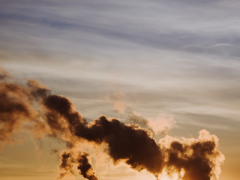PBL study prelude for a biomass sustainability framework
Biomass will likely play an important role in a climate-neutral, circular economy. At the same time, there is ongoing public debate on biomass. Biomass use, in any case, needs to comply with clear sustainability criteria, and international climate goals should not be called into question. Future availability and a responsible use of biomass very much depend on the prevailing broader perspective. Such is the conclusion of PBL Netherlands Environmental Assessment Agency in its recent study ‘Availability and applications of sustainable biomass’.
The Dutch Cabinet intends to set up a widely supported sustainability framework for biomass. To this end, the Ministry of Infrastructure and Water Management asked the advice of the Social and Economic Council of the Netherlands (SER). In this context, PBL was requested to provide an estimation of the availability and optimal use of sustainable biomass for the Netherlands, to serve as input for the SER advice.
Scope
In consultation with the Ministry, PBL limited its study to the production and use of biomass as a material, for energy and fuel, for soil improvement, and as feedstock for the chemical sector. Also including biomass use in the food sector and for animal feed in this study would have been too ambitious, at this point in time.
Joint Fact Finding
The views on biomass vary greatly within society. Therefore, a study on biomass can only be meaningful if these various points of view are included, from the onset. PBL conducted a joint fact finding, by organising meetings, interviews and online consultations, in which companies, non-governmental organisations and research institutes shared their knowledge and insights. The arguments put forward were tested by PBL against more than 400 studies and reports that were suggested by the stakeholders or emerged from PBL’s own literature review.
Demand for and availability of biomass
The scientific literature shows a wide range of estimations of the demand for biomass and its availability. This is explained by the underlying assumptions about agriculture and forestry productivity levels, available land area, amount of post-harvest residual materials that should remain on the soil for the benefit of soil quality and fertility, the use of marginal land for biomass production, and the availability of water. The stakeholders’ perspective, subsequently, largely determines the types of biomass use that are considered ‘good’ and how high or low estimates of availability are assessed. The PBL study outlines the five main perspectives on biomass, with a focus on climate, renewable energy (with minimal use of biomass), circularity, ecology and sustainable development.
Points of agreement
There are certainly various points of agreement, among stakeholders. Climate goals are not called into question. Soils should be treated with care and timber can and should be harvested, on certain preconditions. There is a permanent role for biomass as a resource for the chemical industry. If energetic use of biomass is unavoidable for achieving renewable energy objectives, it should preferably be limited to situations where alternatives are unfeasible or unavailable. One of the least preferred options is that of direct combustion of primary biomass. Within the Dutch context, the level of confidence in the sustainability of biomass is the highest when it originates from the Netherlands, followed by the EU rather than from anywhere in the rest of the world. The importance of ecological, social and economic aspects in the production areas is widely endorsed.
Focal points for biomass sustainability framework
The wide ranges in availability of and need for sustainable biomass present a challenge for developing a sustainability framework. In its study, PBL provides a number of focal points for the sustainability framework, including the following:
- Biodiversity loss is a real risk, although, biomass is likely to play a significant role in a climate-neutral, circular economy.
- Healthy and fertile soils should be ensured, in accordance with EU legislation.
- With regard to indirect land use (impact of biomass crops on agricultural land and forests), it is advisable to follow the course of EU legislation.
- The ‘fair share’ principle (the Dutch share in global use of biomass) cannot easily be translated into policy. A focus on fair, transparent trade in biomass seems more prudent.
- Air quality and health effects should be included in the framework.
- Imposing requirements on imported biomass has its limitations, also from a legal perspective. The Netherlands must continue to actively pursue the dialogue on this subject, on an EU level.




